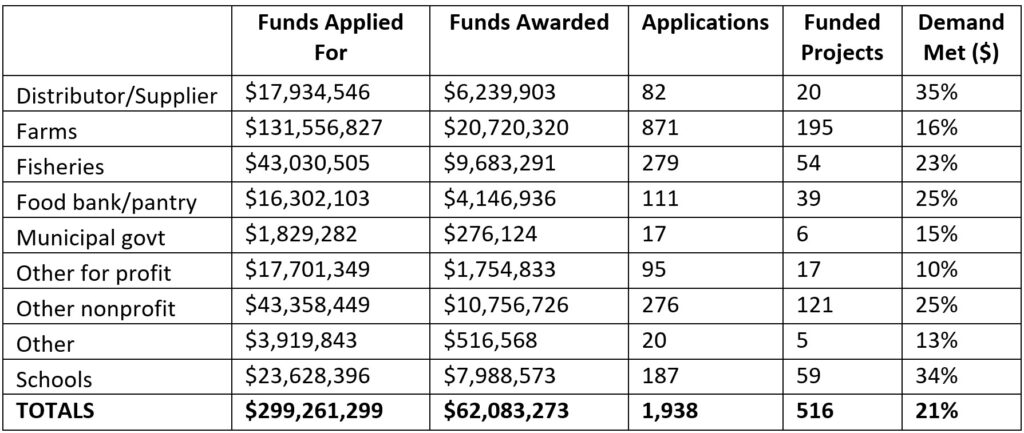The second round of Food Security Infrastructure Grants were announced in April, distributing $22.5 million to 147 projects ranging from farms and fisheries, to food pantries and schools. In the two rounds of funding, the state has committed $62 million to essential food supply chain projects through this program, helping sustain farms and emergency food system providers, and boosting local food system resilience and increasing food security for the Commonwealth. Those grants have only been able to meet 21% of the demand, however – there was more than $299 million requested in applications – demonstrating a clear need to continue the program.
Despite the success of the program, the administration has no plans to fund another round of grants in the new fiscal year (July 2022-June 2023). A bond bill currently under consideration would authorize $51 million in spending for the program. If that measure passes it would be up to the new governor to use it to invest in FSIG through their first capital budget in the spring of 2023.
The Collaborative’s 2021 analysis of the program’s first round made a number of suggestions for improvements to the management of the program, some of which were taken into account for the second round but many of which were not implemented. While the second round of the program made an effort to ensure greater balance of grants awarded in each sector based on the overall proportion of requests received, the proportion of funds dedicated to food production through the two years of the program continues to lag. Farms and fisheries accounted for $175 million in requests, but received only 17% of that, while emergency food system applicants received 25% of their requests, and distributors/suppliers received 35%. Support for all sectors of the food system is essential, and the Collaborative will continue to press for equitable distribution of future resources dedicated to this program.

While the COVID pandemic was the impetus for the program, FSIG’s stated purpose is that it “seeks to ensure that farmers, fishermen and other local food producers are better connected to a strong, resilient food system to help mitigate future food supply and distribution disruption.” Climate change, market and economic challenges, and other disruptions pose immediate threats to the local food system, and will continue to do so in the future. The Collaborative will continue to press the legislature and the new administration to issue additional rounds of funding for FSIG.